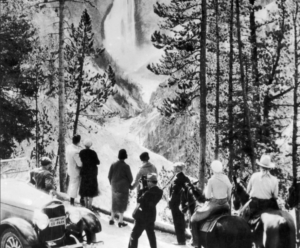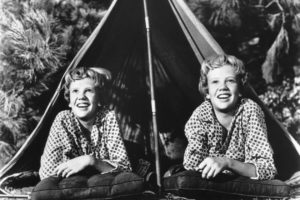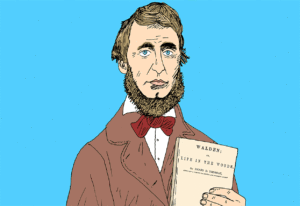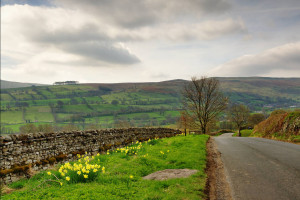Green spaces and nature preserves have long existed, but the idea of protecting natural wonders for human enjoyment has American roots.
March 3, 2022
Yellowstone, the world’s oldest national park, turned 150 this month. The anniversary of its founding is a timely reminder that democracy isn’t just a political system but a way of life. The Transcendentalist writer Henry David Thoreau was one of the earliest Americans to link democratic values with national parks. Writing in 1858 he declared that having “renounced the king’s authority” over their land, Americans should use their hard-won freedom to create national preserves for “inspiration and our own true re-creation.”
There had been nature reserves, royal hunting grounds, pleasure gardens and parks long before Yellowstone, of course. The origins of green spaces can be traced to ancient Egypt’s temple gardens. Hyde Park, which King Charles I opened to Londoners in 1637, led the way for public parks. In the 3rd century B.C., King Devanampiya Tissa of Sri Lanka created the Mihintale nature reserve as a wildlife sanctuary, prefiguring by more than 2,000 years the likely first modern nature reserve, which the English naturalist Charles Waterton built on his estate in Yorkshire in the 1820s.

The Grand Canyon of the Yellowstone River, Yellowstone National Park, 1920. GAMMA-KEYSTONE/GETTY IMAGES
The 18th century saw a flowering of interest in man’s relationship with nature, and these ideas encouraged better management of the land. The English scientist Stephen Hale demonstrated the correlation between tree coverage and rainfall, leading a British MP named Soame Jenyns to convince Parliament to found the Tobago Main Ridge Forest Reserve in 1776. The protection of the Caribbean colony’s largest forest was a watershed moment in the history of conservation. Highly motivated individuals soon started conservation projects in multiple countries.
As stewards of their newly independent nation, Americans regarded their country’s natural wonders as places to be protected for the people rather than from them. (Niagara Falls, already marred by development when Alexis de Tocqueville visited in 1831, served as a cautionary example of legislative failure.) The first attempt to create a public nature reserve was at the state level: In 1864 President Abraham Lincoln signed the Yosemite Valley Grant Act, giving the land to California “upon the express conditions that the premises shall be held for public use, resort, and recreation.” But the initiative lacked any real oversight.
Many groups pushed for a federal system of national parks. Among them were the Transcendentalists, environmentalists and landscape painters such as George Catlin, Thomas Cole and Albert Bierstadt, but the ultimate credit belongs to the geologist Ferdinand Hayden, who surveyed Yellowstone in 1871. The mass acclaim following his expedition finally convinced Congress to turn Yellowstone into a national park.
Unfortunately, successive administrations failed to provide sufficient funds for its upkeep, and Yellowstone suffered years of illegal poaching and exploitation. In desperation, the federal government sent the U.S. Army in to take control of the park in 1886. The idea proved to be an inspired one. The military was such a conscientious custodian that its management style became the model for the newly created National Park Service in 1916.
The NPS currently oversees 63 National Parks. But the ethos hasn’t changed since the Yellowstone Act of 1872 set aside 2 million pristine acres “for the benefit and enjoyment of the people.” These words are now engraved above the north entrance to the park, an advertisement, as the novelist and environmentalist Wallace Stegner once wrote, that national parks are “absolutely American, absolutely democratic.”








